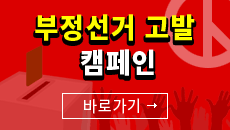|
.jpg)
Park Tae-woo | By Park Tae-woo
It is not unusual for North Korea to again officially call for talks after a certain period of silence. When the North’s military attacked the South Korean warship Cheonan and shelled Yeonpyeong Island, South Koreans were angry enough to demand retaliation against the communist state.
The U.S. is apparently making diplomatic efforts to keep the North’s dialogue overtures alive. U.S. envoys Stephen Bosworth and Sung Kim met Chinese leaders in Beijing. Holding useful talks is a part of efforts to solve North Korean issues.
North Korea made peace overtures through the Committee for the Peaceful Reunification of the Fatherland and the state-run Korean Central News Agency, which the South Korean government considered as insufficient to make an official reaction. North Korea's overtures are not interpreted in Seoul as ones with sincerity.
The Ministry of Unification rejected the North's offer because Pyongyang has not sincerely apologized for the recent military provocations. South Koreans are suspicious of North Korea's intentions, in part because this dialogue offer did not come through official channels.
It is expected that the South Korean government will again review the repeated proposal after closely checking the changed attitude of North Korea, probably adopting a two-track strategy for the proposals.
North Korea's peace offensive is unquestionably designed to produce more and more schisms within South Korea between pro-North Korean groups and rightwing hard-liners. One purpose of the dialogue tactic is being realized in South Korea. We have to bear in mind this tactic.
It is a big tragedy to recall the past bitter memories of North Korea's gloomy tactics functioning behind the proposal of unconditional talks. The North has severed all dialogue channels at the time of the provocations toward the South.
Red Cross talks between the two Koreas, a preliminary meeting for the Gaeseong Industrial Complex issues and the resumption of the Mt. Geumgang tourism project cannot be a process for substantive peace-making, if the North Korean regime is not changed at all. The North would only utilize the dialogue table as a space for political propaganda.
Of course, dialogue has to be pursued even in the critical period of war. The Cold War structure in Northeast Asia calls for the need for more and more dialogue among the major actors such as the two Koreas, Japan, China, Russia and the United States.
The very victims of the Cold War formation right after the 1945, from the perspective of national division, could not give up the hope of overcoming national division by peaceful means and sincere dialogue.
This is the reason why South Korea simply cannot ignore the North Korean proposal. We have another reason not just to accept North Korea's overtures; without a sincere apology from North Korea over the sinking of Cheonan and its shelling of Yeonpyeong Island, we must be careful and prudent before responding to the offer through deep and detailed analysis of the North's sudden shift to a dialogue mode.
Inter-Korean relations are not likely to be improved until North Korea sincerely apologizes and punish those who were in charge of the past two military aggressions. Dialogues just for dialogues could not bear any significant meaning for the inter-Korean relations.
For substantive changes on the Korean Peninsula, North Korea must be reborn into a normal democratic regime. Only then will all the problems of the two Koreas disappear. This clear logic cannot be realized in such a short time span. This is the very agony and substance of the Korean question.
Knowing the limits and dangers of North Korean strategies and tactics, it is also natural for South Korea to be engaged in the two-track policy toward the recalcitrant regime: making highly-alerted military preparedness against North Korea and keeping the dialogue table open. The humanitarian aspect of Red Cross talks must not be affected by the North Korean political maneuvering, and also a change of attitude in North Korea must be a precondition for a mature and fruitful dialogue.
Our wish is that as a big brother of North Korea, China can give a positive signal to North Korea for positive change.
Dr. Park Tae-woo is a visiting professor at department of diplomacy, National Chengchi University, Republic of China. He serves as honorary consul of East Timor in Korea. He has also lectured major international issues at Korea University and Kyunghee University international divisions in English. He can be reached at editor@koreatimes.co.kr. |




